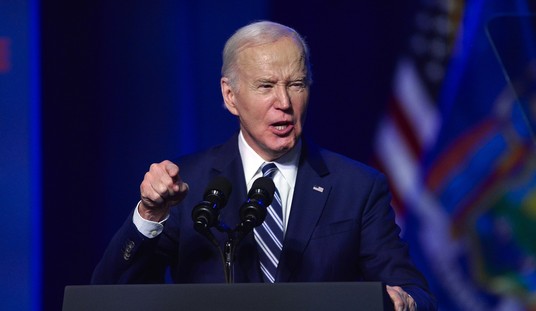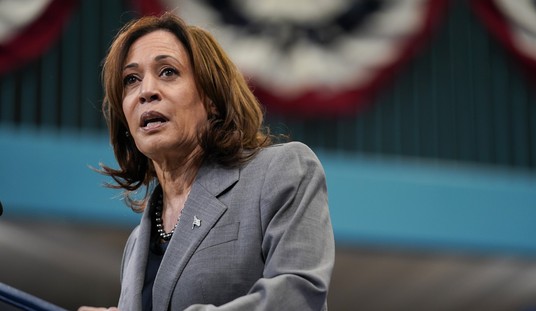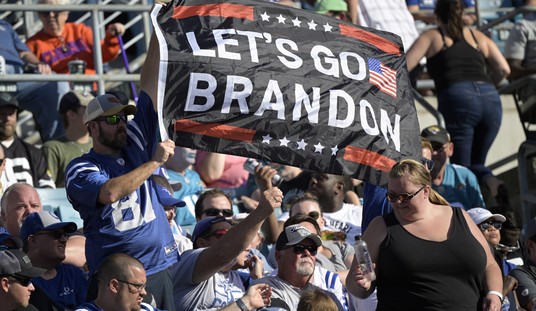Gas tax hikes. Online sales taxes. Immigration. Criminal Justice Reform.
Within the Beltway, on all of these issues, a big fight is brewing between organizations funded by the libertarian-Republican Koch Brothers and President Donald Trump in the latest policy wonky rift dividing the GOP.

Trump recently came out in support of a proposed $0.25 a gallon gas tax hike, also backed by the Chamber of Commerce. The tax increase is designed to help fund infrastructure spending, a top legislative priority of Trump, as well as many congressional Republicans and Democrats.
The president also has signaled his support several times recently for Congress passing a law allowing states to require online retailers like Wayfair and Overstock to collect and remit sales taxes on purchases made through them to states in which their buyers live.
Most recently, Treasury Secretary Steven Mnuchin told the House Ways and Means Committee that Trump “feels strongly” that states should be allowed to require collection and remittance by online sellers. Previously, Rep. Kristi Noem (R-SD), a top supporter of online sales tax legislation, told press that Trump had promised her that he would sign an online sales tax bill into law before the end of the year.
But the Koch Brothers’ Freedom Partners and the Koch backed Americans for Prosperity are actively campaigning against the proposed gas tax increase, urging the President and Congress to reject it in favor of “smarter spending and breaking through the regulatory gridlock that delays projects and drives up costs.”
And Americans for Prosperity, though apparently not Freedom Partners, is pushing back against Trump’s support for online sales tax legislation, saying that such a law would undermine tax reform passed at the end of 2017, despite the fact that the taxes it would facilitate collecting are already legally owed and payable by purchasers.
It’s the latest round of fighting between two wings of the GOP that have frequently found themselves in opposition over recent years, with the Koch wing losing out in most cases.
The Kochs are also supporters of immigration reform that would enshrine more open immigration policies, while the Trump camp is openly restrictionist.
The Kochs are also strongly supportive of criminal justice reform measures, in contrast with the “tough on crime” Trump.
In the 2016 presidential contest, while the Kochs played a limited role, the general perception was that they initially favored Gov. Scott Walker for the GOP nomination, although many in Koch world had hoped that now-Vice President Mike Pence would run. The Kochs were not regarded as friendly to Trump, though they did not fund campaigns targeting him specifically.
Despite liberal critiques of money dictating policy positions and political outcomes within the GOP, the recent history of the Kochs suggests that big financing does not translate into preferred policy and political outcomes for big donors.
Despite big spending on the part of the Kochs through multiple vehicles, including Freedom Partners and Americans for Prosperity, Trumpism—seen as mostly diametrically opposed to the Kochs’ more libertarian thinking—has been ascendant for several years now.
With strong approval ratings among Republicans for the President, it seems more likely that he will get his way than the Kochs will, at least on the online sales tax front.
Despite some opposition to the proposal to allow states to require collection and remittance, which would force buyers currently evading sales taxes to pay up, many GOP officials—especially at the state level, but increasingly at the federal level—support the plan. That is especially the case in states with no income tax, or with low income taxes, where officials want to ensure a broad sales tax base to avoid shifts to progressive tax systems.
Trump’s thinking may be more guided by his hatred of Amazon CEO and Washington Post owner Jeff Bezos than philosophical or practical considerations like these. Nonetheless, with most of the GOP tending to follow his direction on an array of policy matters, he seems to have the edge in this particular fight, as well as on immigration and criminal justice reform (though notably, the President’s son-in-law, Jared Kushner, supports a criminal justice overhaul).
The gas tax could present a better opportunity for the Kochs to notch a win. While Trump and the Chamber of Commerce may see the $0.25 cent a gallon tax increase as essential for securing funding for infrastructure projects that are popular with many voters, the reality is that such a tax hike would probably hit Trump’s base the hardest.
Whereas voters in urban areas commute short distances, consume less gas, and frequently use public transportation, many Trump voters live in rural or ex-urban areas, commute long distances by car, and are less well-off. They are also more likely to drive higher fuel-consuming cars, meaning they would feel the pain of a gas tax increase more than the driver of, say, a Toyota Prius would.
All this might make the push for a higher gas tax the trickiest-to-execute policy that Trump is currently pursuing. Yes, more fuel efficient cars overall combined with lower gas prices have meant that many of his voters have been spending less than they otherwise might on transportation, and therefore infrastructure. However, most Trump voters also do not feel “rich” or as if they have tons of extra cash to spend on higher prices at the gas station, and pocketbook issues can easily fuel political upsets. That’s one of the baseline sentiments and insecurities that Trump rode to the White House. Now, he’ll have to see how far he can push his base on a real, live pocketbook issue.













Join the conversation as a VIP Member